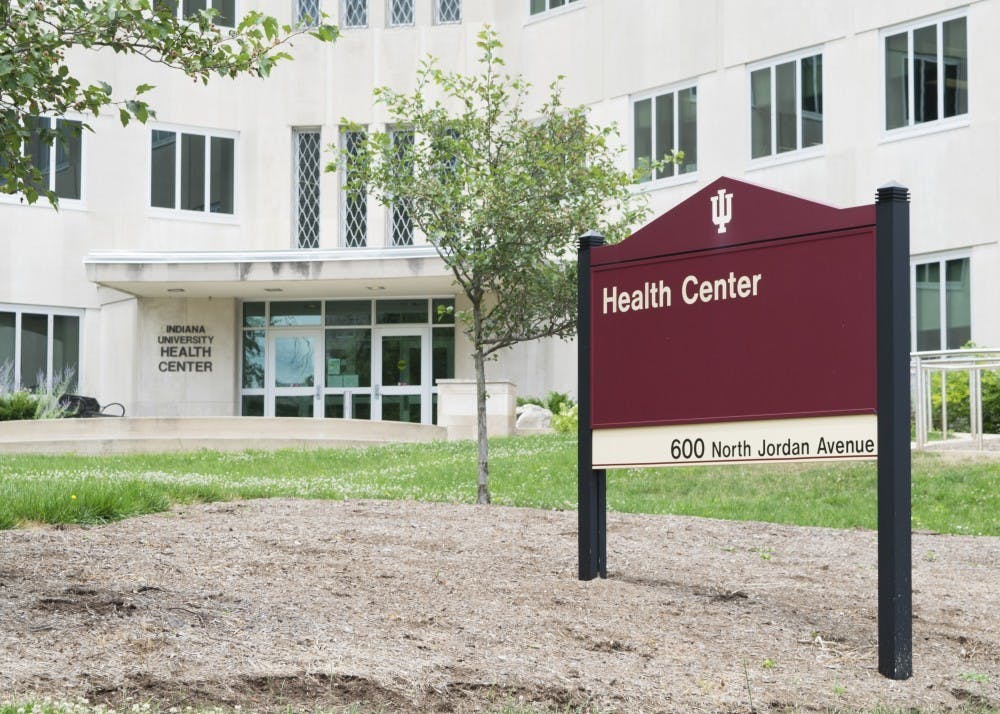When Dr. Laura Knudson joined the IU Health Center staff in September 2018, she said she listed two goals for her next five years at IU: to create a more welcoming environment for gender fluid students and bring together a team to coordinate care for gender fluid and transgender students.
This semester, the IU Health Center launched the Gender Affirming Care Team, a group of physicians, counselors and other IU staff who will provide additional support for transgender, gender fluid and non-binary students at IU.
This group is a collaboration between medical services, counseling and psychological services and the health and sexuality educators at the health center, according to an IU press release.
Although the team has not yet generated an official mission statement, its goal is to have gender fluid students recognize the health center as a place that not only tolerates but accepts and welcomes them to express their gender identity while they are receiving good care, said Knudson, an IU Health Center staff physician and Gender Affirming Care Team member.
“I think we all want to provide welcoming and supporting care for all of our gender fluid students and allow them the very best and most well-coordinated care possible,” Knudson said.
The group plans to achieve this goal by educating health center staff on how to effectively care for transgender, gender fluid or non-binary students and working to build more alliances between the medical, mental health and health and wellness staffs, said Brandon Muncy, Counseling and Psychological Services counselor and Gender Affirming Care Team member.
“I’d like to think that by doing this we are kind of setting a good standard for other places too,” Muncy said.
The group is already taking steps to make transgender and non-binary students feel comfortable on campus by initiating gender-affirming hormone therapy.
IU Health Center previously had physicians who were only comfortable continuing to provide hormone therapy for those who had already started receiving hormones. Now the health center will be initiating hormone therapy in addition to continuing it for those who have already begun.
Before the health center began offering this treatment, Dr. Clark Brittain was the doctor handling the majority of hormone treatments in Bloomington, Knudson said.
Zoe Tosi, a 29-year-old Ph.D. candidate in cognitive science, began her medical transition about two years ago. After going through a six-month-long process of obtaining a doctor’s note to begin hormone replacement therapy, she said she had to wait about three more months before she could see Dr. Brittain.
Having more people available to perform the treatment would have made the process faster and easier for her, Tosi said.
“Having that available, having there be more doctors that can do that, I think it would absolutely make the process much, much smoother,” she said.
Tosi said by making it easier to obtain this treatment, it makes people who are in the process of transitioning feel more welcomed and understood during a scary time.
“It lets you know that the institution that you’re at really cares about your health, cares about you as a person and wants to provide you with the best standard of care,” she said. “It’s very welcoming and inviting.”
Tosi is currently the technology and finance coordinator for the soon-to-be club Transgender Union for Students or TrUSt. The club was previously a student group from the LGBTQ+ Culture Center called Gender Warriors, who worked with GACT to create a list of services and contacts for transgender and non-binary students that helped to lay the groundwork for the team, according to an IU press release.
In addition to providing medical services, the Gender Affirming Care Team is also in the process of updating their websites, patient forms and questionnaires to be more inclusive of transgender, gender fluid and non-binary patients.
In the past when the patient was prompted to answer questions regarding their sexual history, they were asked to indicate how many partners people have had and if their partners were men or women, Knudson said. Now the sexual health history form is non-binary and only asks about things like what type of contact occurred and what kind of protection was used.
“Those things are the things that are medically relevant,” Knudson said.
IU Health staff are also receiving gender sensitivity training from CAPS counselors such as Muncy. The counselors are teaching the staff lessons about how to properly interact with transgender, gender fluid or non-binary students and make them feel welcome. A part of this training includes talking about why using people’s preferred pronouns matters and how to properly correct a slip-up if one occurs.
“Our goal is that any student who identifies as gender diverse can come into the IU Health Center, and they don’t have to worry that someone is going to dead-name them or look at them like they have no idea what they’re talking about,” Muncy said.
It is important that medical services, counseling and psychological services and the health and sexuality educators at the health center work together on this project because gender doesn’t just affect one part of a person, Knudson said.
“Working together just really allows that care to be much more informed and much more complete,” Knudson said. “And I think creating a team makes, I would hope it would allow patients to feel more supported as well.”




